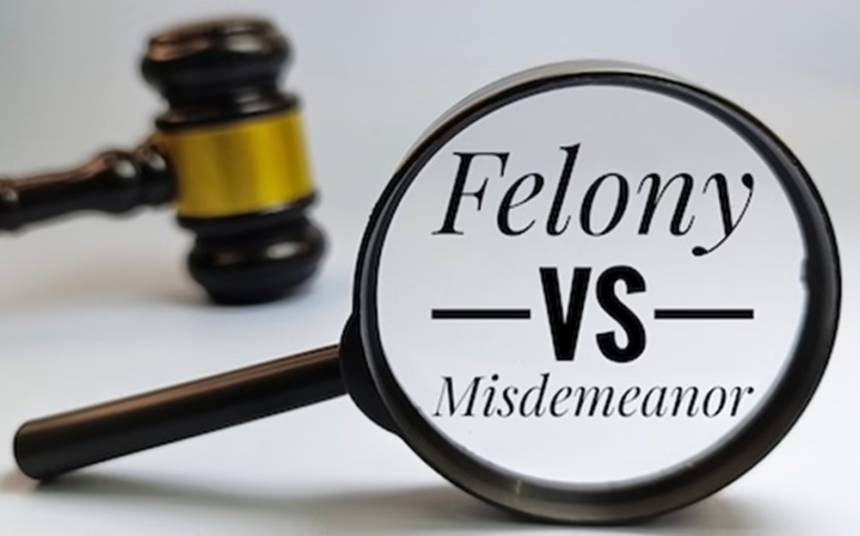When facing criminal charges in Oregon, understanding the difference between a felony and a misdemeanor is crucial. These classifications affect the severity of penalties, legal processes, and long-term consequences for defendants. For those navigating the criminal justice system, working with experienced Oregon criminal lawyers can make a significant difference in protecting rights and achieving the best possible outcome.
What Is a Felony in Oregon?
A felony is the more serious category of crime. Felony charges in Oregon involve offenses that carry potential punishments of more than one year in prison. These include crimes such as burglary, drug trafficking, and violent offenses like aggravated assault.
Felony convictions often lead to more severe consequences beyond imprisonment. This may include hefty fines, loss of certain civil rights such as voting or firearm ownership, and long-lasting effects on employment and housing opportunities.
Degrees of felonies vary, with Class A being the most severe, followed by Classes B, C, and D in descending order of seriousness. The classification influences sentencing guidelines and helps judges determine appropriate penalties.
What Qualifies as a Misdemeanor?
A misdemeanor is considered a less severe offense than a felony. Misdemeanor charges typically carry penalties of up to one year in jail, probation, community service, or fines. Common misdemeanors in Oregon include petty theft, simple assault, and minor drug possession.
Misdemeanors can still have significant implications on one’s life, including a criminal record impacting future employment or housing. However, these charges often allow for more opportunities, like diversion programs or reduced sentences.
Oregon distinguishes several classes of misdemeanors based on severity. Class A misdemeanors, for example, are punishable by up to one year in jail, while Class C misdemeanors might result in smaller fines and no jail time.
Key Differences Between Felonies and Misdemeanors
The primary difference lies in the severity of crimes and the corresponding punishments. Felonies are more serious offenses that have the potential for long prison sentences and greater lifelong consequences. Meanwhile, misdemeanors include less severe crimes with shorter jail terms or alternative penalties.
The legal process and post-conviction effects also differ. Felony charges may involve more complex court procedures and require experienced legal representation, especially if the case involves intricate evidence or multiple charges.
Why Hiring an Experienced Oregon Criminal Lawyer Matters
Whether facing a felony or misdemeanor, Oregon criminal law is detailed and nuanced. Defendants benefit significantly from hiring attorneys familiar with local statutes and court procedures. Skilled lawyers understand how to negotiate plea deals, challenge evidence, and build strong defenses.
How Charges Are Filed and Prosecuted
In Oregon, prosecutors decide whether to file felony or misdemeanor charges based on evidence and circumstances. Some crimes can be charged as either, depending on factors like prior offenses or injury severity. A knowledgeable attorney can advocate for reduced charges when appropriate.
The court system categorizes felony cases under the Oregon Circuit Courts, while misdemeanors may be handled more swiftly. The stakes in felony cases often lead to longer processes, including preliminary hearings and sometimes jury trials.
Understanding Sentencing Options
Sentencing for felonies might include prison terms, fines, probation, or a combination. Oregon also has alternatives, such as drug courts that focus on rehabilitation. Misdemeanor sentencing usually involves jail time of less than one year or noncustodial measures like community service.
A criminal defense attorney guides defendants through sentencing possibilities, advocating for options that match clients’ circumstances and reduce long-term consequences.
Long-Term Consequences of Convictions
Felony convictions in Oregon can result in restrictions on voting rights, loss of professional licenses, and challenges in securing employment or housing. Misdemeanor convictions, while more limited in impact, may still affect background checks and personal records.
Clearing one’s criminal record after either charge type may require legal action such as expungement or sealing, processes that experienced Oregon criminal lawyers regularly manage.
Final Thoughts
Knowing the difference between a felony and a misdemeanor in Oregon is essential for anyone involved in criminal proceedings. Felonies involve serious crimes with harsh penalties, while misdemeanors cover less severe offenses with lighter consequences. Regardless of the charge, having skilled legal representation is critical to safeguard rights and navigate the complexities of the legal system.
For expert assistance, connect with a trusted criminal lawyer like Robert Southwell, who specializes in both felony and misdemeanor cases. Whether you need a property crimes lawyer or an assault attorney, at Southwell Law, you’ll benefit from expert assistance and defense.
Related News:
Oregon State University Offers Thai Students a Pathway to Cutting-Edge Research














